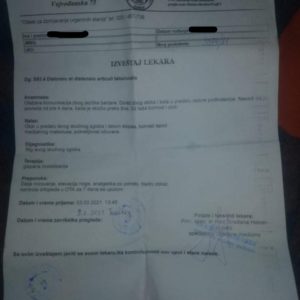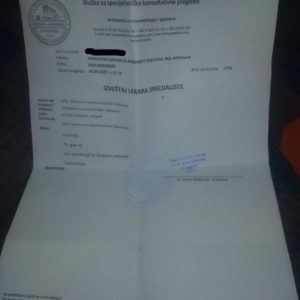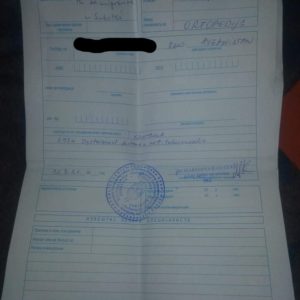The respondent is a 21-year-old man from Afghanistan. On the 26th of February, around midnight, he started to cross the border from Serbia to Hungary along with a larger group of people. They had to climb over two fences. When jumping down from the second one, the respondent injured his ankle.
Ten minutes later police officers arrived at the point where the respondent was and apprehended him. The rest of the group was able to run away and could therefore avoid being stopped by the officers. The respondent reported that the first authorities arriving at the point were three Hungarian officers – identified by the respondent as part of the Border Police -, one woman, and two men. Afterwards, two Hungarian army soldiers joined them, both male. The respondent reportedly pledged the police officers to call the ambulance because he could not walk but they did not call the ambulance until one hour later.
One of the officers asked the respondent for his reason to come there, and he answered: “Because my country is not safe, and my two brothers were killed by the Taliban”. The respondent described the army soldiers as “good police” because they did not strike him. However, the Hungarian officers allegedly hit him on his head, hands, and legs. The female officer would have used a wooden stick and the male one, a black baton. The respondent stated that, even though he explicitly expressed his desire to request asylum, he was told that the police would bring him to the hospital and after he would be brought back to Serbia. The officers reportedly suggested he should just go back to Afghanistan, not to Europe.
Approximately one hour later, the authorities put the respondent into a big van to Bajai Szent Rókus Kórház, the hospital in Baja (Hungary). There, he was registered at 6:05 am and stayed until the 2nd of March, 15:00. The doctor’s diagnostic was a broken bone in the ankle. He was also told to rest and not to walk in six weeks.
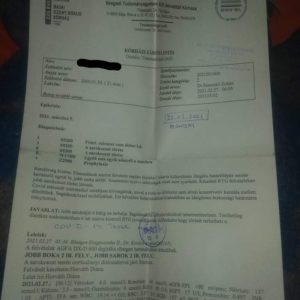
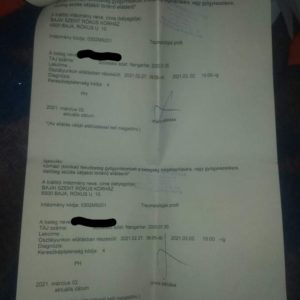
On the 2nd of March, after he had left the hospital, Hungarian authorities brought the respondent to the border with Serbia in a big van. The respondent described that he was asked to leave the car at the Tompa Border Crossing Station, where there were three officers present – he identified them as two army soldiers and one Hungarian police officer. This last one reportedly took pictures of the respondent and also recorded some video clips with a camera. They took his fingerprints and then called the Serbian border police in order to pick him up as he was unable to walk on his own.
According to the respondent, on the Serbian side of the border, he expressed his wish to the officers to be brought to Sombor, but instead they suggested him to take a taxi. As he did not have any money, he took a bus to Subotica and there changed onto a train to Sombor. He went to see a doctor in Sombor on the 3rd of March. However, he did not have anywhere to sleep there so he went back to the camp in Subotica, to have a follow-up inspection with a doctor there on the 10th of March.
